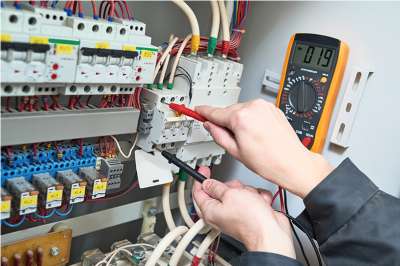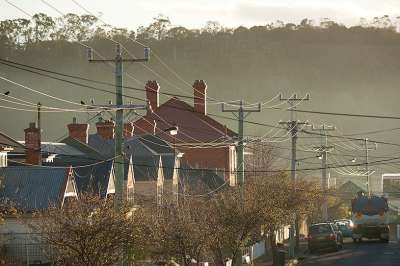Why is an Electrical Certificate of Safety so important?
Safety around electricity has come a long way, but it’s important we’re not complacent about the risks electricity poses.
- If not installed correctly, electricity is potentially the most dangerous form of energy we’re exposed to.
- Faulty electrical work causes house fires, and places you and your family at risk of serious injury or death.
To protect you, your family, and those qualified to perform electrical work there are stringent electricity safety codes of practice in place. So while it’s important to engage a licensed and qualified electrician for your electrical work, it’s equally important to ask for a Certificate of Electrical Safety (COES). An electrical safety certificate will ensure the electrical work carried out in your home is compliant and safe.
What is a Certificate of Electrical Safety (COES)?
A Certificate of Electrical Safety is a compliance document completed by the licensed electrician performing the electrical work in your home. Only a registered electrical contractor or licensed electrician can issue it. A COES confirms the electrical work carried out has been tested and complies with the Electricity Safety Act 1998 and the Electricity Safety (Installations) Regulations 2009.
It is a legal requirement and must be issued within 30 days of completing the work. Failure to provide a customer with a COES is a criminal offence.
When is a Certificate of Electrical Safety required?
Whenever a licensed electrician completes any form of electrical installation work on your home, a COES must be provided. Whether you’re installing a new oven, an air conditioner or replacing your switchboard or light switches, you will need a safety certificate from your licensed electrician.
What type of Certificate of Electrical Safety do I need?
There are two types of COES to cover the different types of electrical work:
 Prescribed electrical installation work – This covers major electrical wiring work. For example, wiring from street to switchboard, where electricity cannot be switched off. Upon completion Energy Safe Victoria must inspect this type of work.
Prescribed electrical installation work – This covers major electrical wiring work. For example, wiring from street to switchboard, where electricity cannot be switched off. Upon completion Energy Safe Victoria must inspect this type of work.- Non-prescribed electrical installation work – This covers all minor electrical wiring work. For example, installation and maintenance of power points, lighting points, safety switches or a circuit breaker. This type of work does not require inspection by Energy Safe Victoria.
Your licensed electrician will know which electrical safety certificate is right for your electrical work.
What information is included on your Certificate of Electrical Safety (COES)?
It’s important to check your licensed electrician has completed all details on your Certificate of Electrical Safety (COES). Your COES must include the following:
- A certificate number and barcode issued by Energy Safe Victoria;
- The details of the responsible business/electrical contractor including a registered licence number;
- The details of the licensed electrician carrying out the installation work on your property;
- Your customer details including the address of where the work is being carried out;
- A detailed description of all work undertaken including a statement by the licensed electrician outlining the type and location of electrical equipment installed;
- The licensed electrician must sign and date when the work was completed and certified;
- Three identical copies to be issued and kept by you (the customer), your electricity provider, and Energy Safe Victoria, the responsible state government authority.
What if you don’t have a COES for electrical work carried out?

It’s best to ask your electrician about safety certificates before the work commences. If your electrician refuses to supply a Certificate of Electrical Safety (COES) you should refuse to offer the job. You can also make a complaint with Energy Safe Victoria.
For recent electrical work, don’t be afraid to go back to your licensed electrician and ask for a Certificate of Electrical Safety (COES) for the work completed. If you haven’t received your certificate within 30 days it may have slipped through the cracks and it’s worth a friendly follow up. Energy Safe Victoria keep copies and you can request a COES for past electrical work.
If you don’t have a COES and you’re uncertain about whether your electrics have been installed to regulation standard, it’s worth seeking out a licensed electrician to test and assess. After relevant testing is carried out you can then be issued with a COES. This will give you peace of mind that your home is safe from electrical hazards.
ITA Electrical
At ITA Electrical, you won’t need to follow us up to get your Certificate of Electrical Safety (COES)—it’s part of the job.
We offer a free electrical assessment with every job. Our electricians are well qualified and licensed to carry out inspections and testing for electrical faults, wear and tear, and safety.
We always provide a COES for the work we do. If you’d like to book a licensed electrician to inspect or test your home, get in touch with the team at ITA Electrical on 03 9761 8700.
Must Read
ITA Electrical on 23 January 2017
10 Questions to Ask a Fixed Price Electrician
Choosing a set price electrician gives you the comfort of knowing exactly how much your job will cost, without any unexpected surprises ...
Read moreITA Electrical on 26 September 2016
Searching for a cheap electrician? Read this first.
'Cheap' electricians aren't always so cheap in the long term. Go for great value instead ...
Read more